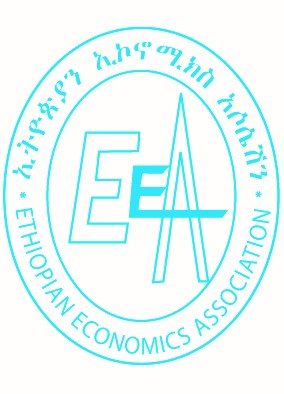EEA’s Institutional Profile
The Ethiopian Economics Association (EEA) is a non-profit, non-partisan, and independent research and membership organization, established under the Ethiopian law in 1992. Since its formation EEA has strived to: a) provide its members a platform of network, experiential learning, and access to current information; b) generate evidence-based analysis on an evolving social, economic and environment realities of Ethiopia so that policymakers, practitioners, business community, researchers, development partners and the general public are informed; c) contribute to frontier and emergent economic thinking relevant to the Ethiopian context and to advanced research methodologies, academic rigor, and development processes.
Vision: EEA aspires to become a premier professional association serving as a center of excellence regionally and internationally for providing unconstrained and evidence-based economic policy research and analysis.
Mission: To provide a platform for networking, information and learning; to inform and influence evidence-based policymaking; to offer prioritized training; and to contribute to the advancement of the discipline of economics.
Project Profile
- Project title:Global Foundational Analysis to Close the Gender Profitability GAP (GPG)
- Funding organization:Bill & Melinda Gates Foundation (BMGF)
- Lead applicant/grantee:Ethiopia Economics Association (EEA)
- Sub-awards/Co-applicants:
- New York University Abu Dhabi (NYUAD)
- Vassar College (VC)
- College of Development Studies (CoDS) at Addis Ababa University (AAU)
- Duration of the project: 31 Months (November 2020 to June 2023)
- Research team
- EEA: Mengistu Ketema, Degye Goshu, Abule Mehari, Marta Beczon, Lemessa Abdisa, and two pre-doc researchers (to be employed)
- NYUAD: Morgan L. Hardy
- Vassar College: Gisella Kagy
- AAU: Emebet M. Hassen, Emezat Hailu, Aseffa Seyoum, and Aynalem Mengesha,
Project objectives
The project has two broad and related but distinct research objectives, global and national component.
- Global foundational analysis on GPG
- Improved understanding of global business and policy environment for WOE
- Increasing knowledge of global stylized facts, trends, and predictors of GPG (Synthesizing and analyzing existing secondary data)
- Synthesizing existing research and evidence (meta-analysis and re-analysis through a gender lens)
- National research & analysis on GPG and women economic empowerment (WEE) in Ethiopia
- National analysis of the GPG in Ethiopia
- Generate and integrate two new papers on ‘Gender and the Economy’ into the SEE 2021 and 2022 reports
- Collaborate on interdisciplinary analysis on the barriers to women’s work in Ethiopia
Expected outcomes and outputs
- Global component of GPG
- Primary outcome 1: Foster a global research initiative and policy discussion among researchers and policy makers to best close the GPG experienced by WOE
- Improved understanding of global business and policy environment faced by WOE for policy makers and global researchers
- Harmonize data useful for global researchers and policy makers focused on closing the GPG.
- Increase knowledge of global stylized facts, trends, and predictors of GPG
- Increased cohesion of existing research focused on identifying drivers of and potential solutions to close the GPG
- Improve engagement among policy makers, in-country researchers, and global research community regarding solutions to best close the GPG
- National component
- Primary outcome 2: Scientific evidence on gender balance and the economy in Ethiopia is produced and relevant policy interventions proposed
- GPG in Ethiopia is assessed and relevant policy interventions proposed
- The link between gender and economy in Ethiopia is investigated
- Interdisciplinary research on WEE in Ethiopia is conducted
- Strong and sustained partnership and networking of EEA with major partners (including BMGF, NYU, Vassar College, AAU) is established
- Improved capacity of EEA in rigorous gender research

